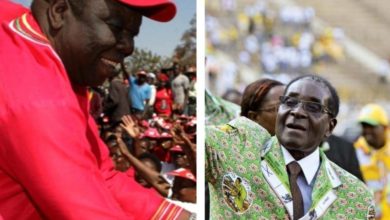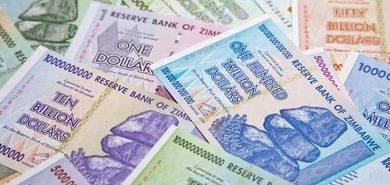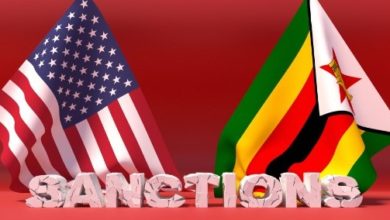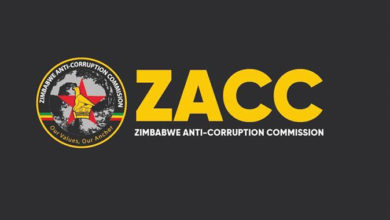The intriguing Book of Zimbabwe – Part 2, the Prime Minister, the President & the Prince

In the beginning

“I, Robert Gabriel Mugabe, swear that I will be faithful and bear true allegiance to Zimbabwe and observe the laws of Zimbabwe, so help me God.” This was the pledge of the Prime Minister as he took his seat in Salisbury as the first democratically elected leader of a free Zimbabwe, and his place in history among the nation’s immortal names. Earlier in the year, the Prime Minister Elect had broadcast a speech in which he celebrated the election victory and gave an overview of the policy direction of his incoming government.

1987 Unity Accord
He also struck a conciliatory tone as he tried to reassure the white and Ndebele communities especially, who may otherwise have become apprehensive about their futures in the country. In the speech broadcast on the 4th of March, the Prime Minister Elect, had said he was “holding consultations with the leader of ZAPU (PF), Comrade Joshua Nkomo, so we can enter into a coalition,” and also made an appeal for reconciliation across the tribes and races saying, “I urge you, whether you are black or white, to join me in a new pledge to forget our grim past, forgive others and forget, join hands in a new amity, and together, as Zimbabweans, trample upon racialism, tribalism and regionalism.” In all, it was a powerful nation building message that not only captured the hopes and dreams of the nation but also allayed the fears of many, and set up the young Zimbabwe for several years of initial success despite some hiccups along the way.
Canaan Banana becomes independent Zimbabwe’s first President

Ahead of him was sworn in Canaan Banana as the first President of the Republic of Zimbabwe. It was the President to whom the formal transfer of power was made. Prince Charles, who was representing Queen Elizabeth II at the occasion, was gracious in handing over the instruments of power to President Banana, and in wishing the newly independent country well, even though Zimbabwe’s independence meant a shrinking British Empire for him to one day take over. Said the Prince, “It is my very great privilege to hand to you these constitutional instruments, a symbol of your independence. I do so with the best wishes of all the people of Britain, for the future peace and prosperity of your country.” At that time, the President was a constitutional and purely ceremonial role which another distinguished Zimbabwean political leader, Joshua Nkomo, had said he would not accept as it did not give the incumbent latitude to do much political work. President Canaan Banana was to several years later step down from the post, paving way for an Executive President which Robert Mugabe took in 1987 after a political settlement over unresolved issues that had not been addressed at independence. Canaan Banana passed away from cancer in 2003 as a controversial politician who had, in 1997, been accused of homosexuality, a lifestyle choice that is not widely accepted in the country. Following a highly publicised trial, the former President was convicted of eleven counts of sodomy and unnatural acts. He ultimately served six-months of a multiple-year sentence which included a penalty for having skipped the country whilst on bail. Much of the sentence was suspended, and having been a man of the cloth, Canaan Banana was defrocked, denied state pensions and after his death, was eventually buried without state honours, away from the national shrine. Although attitudes in Zimbabwe towards the LGBTQ community are changing, and there appears to be less and less criminalisation of it, with the Government seemingly adopting a laissez-faire approach, there is still some way to go before our society freely accepts the LGBTQ lifestyle. This also generally remains true for many societies in Africa.
Bob Marley was invited to perform at the celebrations

celebrations in April 1980
Circling back to the inauguration and Independence celebrations that day, the legendary Bob Marley was present to witness his personal dream of a free Africa edging ever closer. He sang these lyrics from his now acclaimed tribute song, Zimbabwe. Almost prophetic in their power, hope and foresight. Prophetic in that they foretold of the revelations of the true nature of some of the revolutionaries, hopeful in that they advocated for self-determination and full of foresight in that they in a way foresaw power struggles that played out well into the future. I quote them in part here;
“Every man gotta right to decide his own destiny.
And in this judgement, there is no partiality.
So arm in arm, with arms, we’ll fight this little struggle.
Cause that’s the only way we can overcome our little trouble.
Brother you are right, you are right, you are right, you are right, you are so right.
We gon’ fight, (we gon’ fight), we’ll have to fight, (we gon’ fight) we gonna fight, (we gon’ fight), fighting for our rights.
Natty Dread it in-a, Zimbabwe.
Set it up in, Zimbabwe
Mash it up-a in-a, Zimbabwe
Africans a-liberate, Zimbabwe.
No more internal power struggle.
We come together to overcome the little trouble.
Soon we’ll find out who is the real revolutionary.
Cause I don’t want my people to be contrary.”
(Credit: Bob Marley, song – Zimbabwe)
What a time it must have been to be alive? It was the end of segregation, the end of strife, the end of conflict, the end of a hundred-year nightmare. It was the naissance of equality, it was the dawn of a new day, it was the beginning of great things to come, or so they thought.
After a long and bitter struggle spanning the greater part of a hundred years. Finally, the dream of this small nation had been achieved. The dream of a nation of equals and equal opportunity, where all people, black or white, were free to mix, mingle, associate or dissociate at will, without fear or hindrance. This was the birth of democracy in a 39-million-hectare territory 20 degrees south of the equator and 30 degrees east of the meridian. This was the birth of our Zimbabwe.
Hoisting the Zimbabwe flag
It was a time of joy and celebration for the victorious and a time of uncertainty for the defeated. The year was 1980, the atmosphere was electric, hopes were high, peace – albeit a forced one, was achieved, reconciliation and reconstruction were proclaimed, and the future was bright. The Union Jack came down amid loud cheers as the colorful striped flag of a free Zimbabwe rose in its place. It was also a solemn time, a time to reflect on the events of the last century: The occupation, the bondage, the toil, the tears, the blood, the struggle and the victory. Amid the pomp and ceremony of the 18th of April of that year, many thoughts rang in the minds of all present. What did the future hold for the liberated majority, for the humbled former masters, for the new leadership and for the world at large, coming to terms with an increasingly liberated and enlightened Africa?
What a spectacle it must have been for the Prince of Wales representing the faltering Great British Empire at Rufaro Stadium on that occasion. One can only wonder what his honest thoughts were. Imagine the large amounts of money the empire had invested in this country, building roads and dams and schools and hospitals and universities and power stations and recreation parks and magnificent homes and resorts and all that one can come to expect from a land locked paradise in Africa. Could all this wealth be handed over to these African people without compensation offered to the British people’s kith and kin? Who would pay for it all? Remember dear reader, that at the bottom of all human conflicts is either one of two things, religion or economics. In our case, our fight, our pain, our thorn in the side was a war, a war for economic emancipation. We may have proclaimed a multitude of other causes as we fought the oppressor but all else was secondary, secondary only to the economics. If one takes the time to review the large archives of documentaries featuring the then Rhodesian blacks, one will hear the pressing call by black people for equal economic opportunity. They wanted fairer access as with the whites to education, jobs, decent homes and fertile farmland – of course to better their personal and collective economic positions.
The people were expectant, the politicians had good intentions
For our new leadership, I imagine the passion was to see prosperity for all our people, basic education and healthcare for all. A basket full of bread and not one mouth unfed. It must have been a little bit of fear, the fear of failure and a lot of hope for success. It must have been feelings of accomplishment and a burning desire to prove to the world that we were here, willing and able to engage the world in progressive dialogue and ideologies. It was the passion not unlike that of new love. It was real and not staged; it was thoughts of a better life for every man, woman and child of this great and wonderful nation of ours.

For the masses that thronged the stadium, the excitement of the event may have momentarily allowed them to forget the hardships of the years prior. It allowed them to look into the future where hope shone more brilliantly than despair. It was a future where poverty was the past. It was their Canaan, it was their promised land. At long last the yokes were gone and liberty was theirs for the taking. The land was bursting at the seams with milk and honey. Fertile farmland was plentiful and a lot more than enough for everyone. All that was needed now was redistribution. When will it start; in a day, a week, a month perhaps a year or two? Who knew really? All they knew was that it had to be sometime soon. After all, isn’t it what the whole war was about, the land, the mineral wealth, the observable natural heritage, human liberties and human rights or to sum it up, the economics? ‘But for the here and now’, they thought, ‘we will celebrate and leave it all to our leadership. They brought us this far, didn’t they?’
More to come…
Please subscribe and share link to stay updated when the next instalment of The Book of Zimbabwe is published.





2 Comments